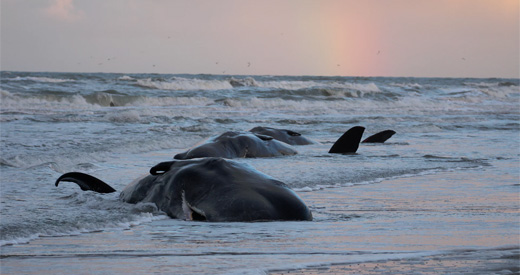Turning the tide on ocean plastic waste
Ahead of World Ocean Day in June, the Guardian reported that biodegradable plastic is not an appropriate solution for the growing ocean plastic waste issue, according to top UN scientists. Contrary to popular belief, biodegradable plastics do not break down easily, remaining instead as debris in the ocean, finds a UN report, just like other more ‘mainstream’ types of plastic.
Commenting on the issue, Jacqueline McGlade, chief scientist at the UN Environment Programme (UNEP), told the Guardian: “A lot of plastics labelled biodegradable, like shopping bags, will only break down in temperatures of 50°C… They’re not buoyant, so they’re going to sink… they’re not going to be exposed to UV and break down.”
More than 300m tonnes of plastic were produced in 2014, and this could reach nearly 2,000m tonnes by 2050, the UN estimates. While the exact amount in the world’s oceans is unknown, the report concludes that plastic debris in the ocean is now everywhere, even as far away as the Chagos Islands in the Indian Ocean. It spreads via currents to oceans from the Arctic to the Antarctic, and includes everything from fishing nets (that can ensnare marine mammals) to smaller fragments that break down in the ocean. Known as ‘microplastics’, they gradually form a ‘plastic soup’ that is consumed by marine life and gradually makes its way into the food chain.
Earlier this year, some 29 sperm whales were found stranded in shores around the North Sea. Scientists discovered that the stomachs of 13 of these whales, which beached in Germany, were full of plastic debris, including a 13-metre-long fishing net and a 70cm piece of plastic from a car.
The chief solution to ocean plastic waste is better waste collection and recycling, particularly in the developing world, according to the UN. However, the additives used in biodegradable plastic can make it harder to recycle, potentially harming the environment. The report’s authors highlight that previous warnings about ocean plastic waste, originating as early as the 1970s, had not been taken seriously. However, it concludes, there is now a “moral argument” to stop further plastic pollution in our oceans. Marine litter should be considered a “common concern for all humanity”.
A new film documentary, A Plastic Ocean, aims to raise awareness of the dangers of ocean plastic waste. The producers, an international team of adventurers, scientists and environmentalists, have sought to highlight the environmental impacts of our disposable lifestyle. Over four years, they captured footage of marine life and plastic pollution and its ultimate consequences for human health, filming in 20 locations including some of the world’s remotest waters. Importantly, they also cover technologies and policy solutions that stand to make a positive difference.

